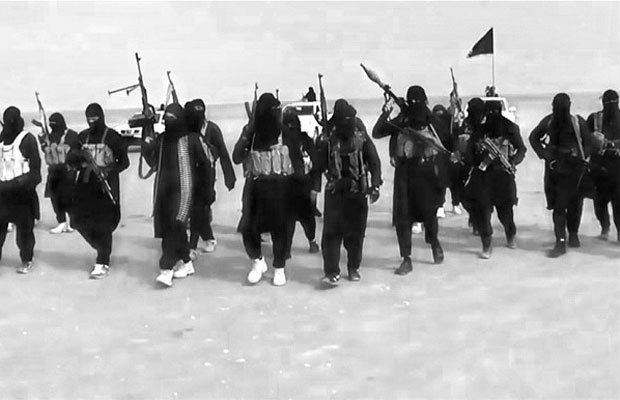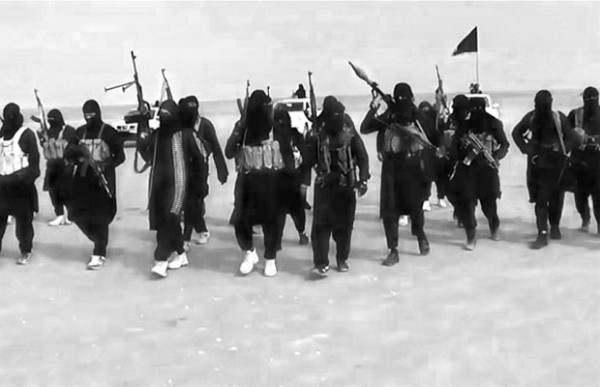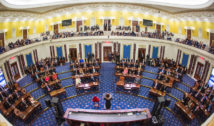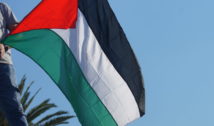
Who Is ISIS (aka ISIL) and Why You Should Care
- By Krista R. Burdine --
- 24 Jun 2014 --

With their recent rise to power in Iraq, we should all know: who is ISIS?
A new holy war has emerged on the Middle Eastern stage. In the past few weeks, Iraq has fallen into a divided nation as a jihadist group labeled The Islamic State of Iraq and Syria (ISIS), aka The Islamic State of Iraq and the Levant (ISIL), too extreme for al-Qaeda, has made its first play to take back the nation from the current Shiite administration. The fall of Mosul, Iraq’s second-largest city, has gathered the attention of the world. But there is nothing sudden about the rise of ISIS, as plans have been carefully coming together for years.
Who leads ISIS?
While Westerners generally concur in their opinion of al-Qaeda as a strong militant terrorist organization, the recent actions of ISIS (in Arabic, Da’ash) have swiftly elevated it above al-Qaeda in terms of violence, effectiveness, and power as a jihadist group. The extremist organization, which now effectively controls large portions of western Iraq and eastern Syria, has been led since 2010 by former al-Qaeda operative Abu Bakr al-Baghdadi.
Al-Baghdadi, also known as Abu Dua, came of age during Saddam Hussein’s reign in Iraq. After 9/11 and Hussein’s subsequent fall from power, al-Baghdadi was held as a terrorist from 2005-2009, an experience which may have radicalized him further. Reportedly, he taunted Americans upon his release, saying, “I’ll see you guys in New York!” This charismatic leader attended the University of Baghdad and has used his education to great effect in propelling himself into leadership. Last year he announced plans to merge jihadist groups in Iraq and Syria, which led to his group being disavowed by both Ayman al-Zawahiri of al-Qaeda and Jabhat al-Nusra, leader of Syria’s extremist Islamic branch.
How Did ISIS Rise to Power?
Al-Zawahiri warned al-Baghdadi to stay out of Syria, declaring him too extremist to represent the interests of al-Qaeda. Al-Baghdadi’s goal is nothing short of violently uniting the entire region to create an Islamic state of greater significance and power than its political affiliations. Several generals and thousands of officers trained in Saddam Hussein’s army have joined ISIS strengthening their military prowess. Moreover, the current Iraqi army seems undertrained to combat this invading threat.
Apparently extreme brutality combined with social welfare programs is an effective tool for gaining support. ISIS now controls large areas that lie beyond the reach of governments or al-Qaeda, preaching its ideology and converting Sunnis by setting up education, judiciary venues, and even a consumer protection agency in Syria. Meanwhile, they have also been conducting a broad swath of Shiite and Christian executions wherever they go.
The success of ISIS with destabilizing political forces in Iraq and Syria has increased tension in the surrounding countries of Turkey, Jordan, and Saudi Arabia, who fear they may be the next to attract its attention. For now, with Mosul under its sway, the organization looks onward to Baghdad.
What Motivates ISIS?
In a jihad, combatants are willing to fight to the death for their belief that all outsiders, from less extreme Shiite Muslims to Christians, must die for their lack of faith. Although Sunni jihadists claim religion as their driving force, their ultimate goal appears to be power and wealth; however, by using religion and glory in the afterlife as their public motivation, the group is able to secure young suicide bombers to deliver the violent message of world religious cleansing.
Now three large jihadist groups threaten political and religious stability in the region. Al-Qaeda, currently led by the Egyptian al-Zawahiri, is based in Pakistan. Jabhat al-Nusra heads the arm of al-Qaeda recently expanded to Syria. And ISIS, splintered from and disavowed by al-Qaeda, is attempting to unite disenfranchised Sunnis across Iraq and Syria. This new group has declared jihad in order to turn Syria into an Islamist state as well as to recreate the Islamist caliphate in the region as it was in the time of the Ottoman Turks almost a century ago. Although they oppose one another, all three extremist groups desire these outcomes, but al-Baghdadi fancies himself the prime candidate to become the new Emir of this restored branch of the Islamic Empire.
How ISIS Used Twitter to Get Attention
ISIS has been gathering steam since al-Baghdadi’s rise to leadership in 2010, but just recently is becoming a household term. So how has ISIS burst onto the world stage so quickly? Much of its success can be traced to social media. The organization has gained momentum through the use of an Android app called The Dawn of Glad Tidings. Users agree to allow this powerful app access to modify or delete contents on the device storage, to run automatically, and to send tweets on their behalf. By so doing, app creators have been able to coordinate trending hashtags on Twitter through hundreds of individual accounts. Since April, graphic pictures of militant violence have been distributed to evoke support for their mission, and as intimidation tactics against their enemies. Last week, this tool disseminated a picture of an ISIS flag flying over a building in Baghdad, with the message “O #Baghdad, we are coming!”
In addition to the many Sunnis throughout Iraq and Syria that claim affiliation with this group, ISIS possibly consists of 7,000 to 10,000 fighters, and more e-jihadists working the media side. The actual size of ISIS is difficult to determine, precisely because of the effectiveness of its social media campaign. With all the influential retweeting and reposting of key information, just a few educated operatives at the heart of the organization can make their voice loud enough to be heard globally. There are probably a lot of media outlets in the United States that would love to be given this kind of audience access by those who use their apps.
Where does ISIS Get Its Funding?
Before last week, ISIS already had millions of dollars raised from wealthy Sunnis discontent with Shiite leadership in Iraq. The social media campaign has also helped collect more large donors. The group already had such influence in Mosul that it was collecting substantial sums in taxation, but city banks and reserves were completely raided to the tune of $480 million the recent hostile takeover. By some accounts, the group’s bankroll now exceeds $2 billion. With this money they hire mercenaries; subsidize food, medicine and education for the very people they just took it from; and produce well-made propaganda to appear reasonable. Money translates to power.
ISIS’ Prospective Future
If ISIS is too extreme for even al-Qaeda, perhaps it will be short lived. Much of the world’s population has a strong distaste for this level of extremism and brutal violence. In the short term, ISIS relies on a network of smaller groups to help carry out its larger plan. Even though the influence of social media plays a part, it does not alone win a war. The social programs instituted by the group may have secured the support of disgruntled Sunnis, but perhaps they will lose their taste for this particular brand of extremism.
In its bloodthirsty approach to growing the Islamic Empire, if ISIS cannot maintain the confidence of the networks, social media, and resident Sunnis, then its influence could crumble. But Westerners would do well to pay close attention. History shows that ignoring troublesome problems does not make them go away, and sometimes they grow too large to disarm.



















1 comment
Krista R. Burdine
12:16 pmAt the end of his three-day visit to Turkey Pope Francis urged Muslim leaders worldwide to condemn in an unambiguous language the barbaric violence committed by Islamic radicals (ISIS) against innocent civilians.
In reply, Turkish president Erdogan expressed an explicit contempt of the West by linking directly Islamic Terrorism on growing anti-Muslim sentiments in Europe and America, and the growing Western conspiracies to dominate the Middle East. Erdogan insisted during Pope Francis’ visit to Istanbul that there was a “very serious and rapid trend of growth in racism, discrimination, and hatred of others (Muslims), especially Islamophobia in the West.”
Let us analyze closely the following verses from The Koran and see who hates the “OTHERS” more, the West or Islam:
“Know that we send down to the unbelievers (Jews and Christians) Devils who incite them to evil. Therefore have patience their days are numbered.” Koran 19:87
This verse is often chanted during the beheading rituals we often see on radical Islamic websites. For the pious Muslim beheading his defenseless hostage, it is an act of heroic proportion, because he is slaughtering the Devil incarnated in the human form of an Infidel.
“Satan has gained possession of The People of The Book (Jews and Christians) and caused them to forget Allah’s warnings. They are the confederates of Satan; Satan’s confederates shall assuredly be lost in hell. The Believers are the confederates of Allah (Hizbollah); and Allah’s confederates shall surely triumph.” Koran 58:19
Another verse recited frequently in the background of beheading rituals, to reinforce the view that by slaughtering Christians and Jews, a pious Muslim is killing Satan not an innocent captive.
“We will put terror into the hearts of the unbelievers (Jews and Christians). They serve other Gods for whom no sanction has been revealed. Hell shall be their home; dismal indeed is the dwelling place of the evil-doers.” Koran 3:149
A verse often used by Salafist radicals to spread terror and encourage Muslims to kill indiscriminately innocent children, women, and seniors attending a wedding or using the public transit system. After all Jews and Christians worship Gods that have not been sanctioned by the Allah of Islam, and they are all classified as evil-doers who shall perish in an earthly hell of Muslim design,make, and timing.
“Do you fear the unbelievers (Jews and Christians)? Surely Allah is more worthy of your fear. If you are true believers make war on them; Allah will chastise them through you and humble them. He will grant you victory over them and heal the spirit of the faithful.”
Koran 9:14
A favorite
passage of Hizbollah fighters in Lebanon, who scored with the help of Allah a
“Divine Victory” against the mightiest army in The Middle East (IDF 2006).
Hassan Nasrallah, the supreme leader of The Hizbollah movement in Lebanon exploits this passage extensively in his fiery speeches to remind his followers that Allah’s will for the believer is very clear; his or her primary religious duty should be to wage war on the Jewish State of Israel to liberate Jerusalem, destroy Christian unbelievers who sustain the existence of Israel, and thus impose on the “Kouffar” Allah’s agenda for the salvation of humanity.
“Cast into hell every hardened unbeliever, every opponent from the people of the book (Jews and Christians), and every doubting transgressor who has set up another God besides Allah. Hurl him into the fierce tormenting flames of hell.” Koran 50:21
Suicide bombers use this verse (in videos taped prior to their heroic operations) to justify the blowing up of their explosive charges on buses and in a variety of public places frequented by Jews and Christians. By becoming a “Shahid” (Arabic for martyr) and securing a place in Allah’s heavenly kingdom, the suicide bomber is hurling his victims (hardened unbelievers) into the fierce tormenting flames of hell-the inferno created by the explosion in a confined space.
Believers, do not make friends with any men other than your own people. They will spare no pains to corrupt you. They desire nothing but your ruin. Their hatred is clear from what they say, but more violent is the hatred which their breasts conceal.” Koran 3:117
These verses are used extensively every Friday, in dozens of mosques located in major capitals such as London, Paris, Brussels, Spain, Toronto…to deepen the schism between Muslims and non-believers, and insulate them from any arguments that may challenge radical Islamist narratives. The time has come to reinforce the key principle that no democracy has any legal or moral obligation to tolerate the intolerable, including Muslim presidents like Erdogan.
And to all Western apologists who believe that tolerance should remain one of the most distinct characteristics of democracies, I invite them to reflect on the following statement of British novelist Dorothy Sayers:
“In this world it is called Tolerance, but in hell it is called indifference,
the sin that believes in nothing, cares for nothing, seeks to know nothing,
interferes with nothing, enjoys nothing, hates nothing, finds purpose in
nothing, lives for nothing, and remains alive because there is nothing for
which it will die.”
Sergei Bourachaga